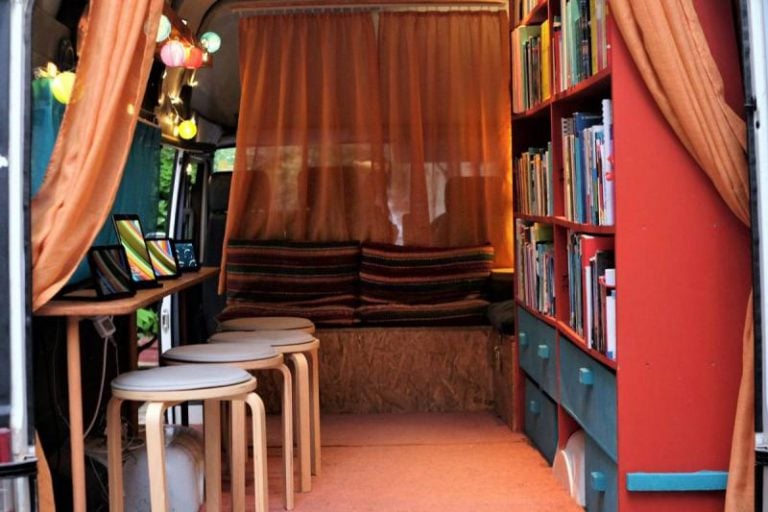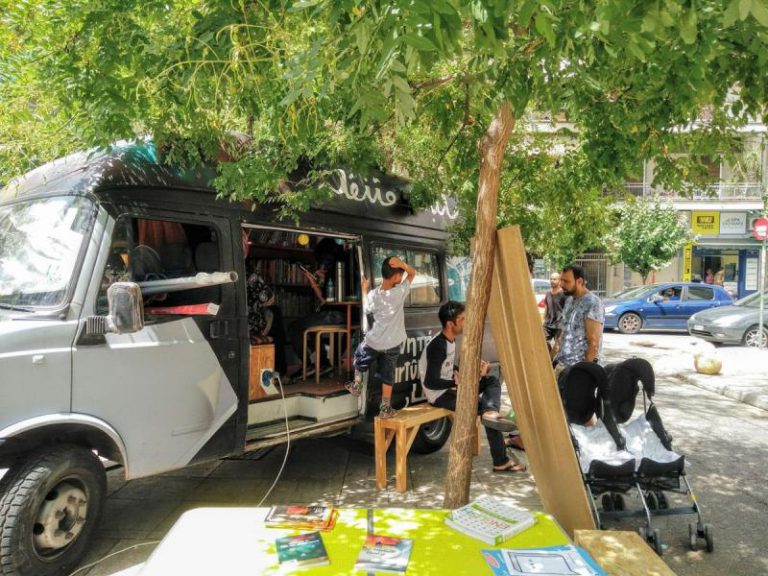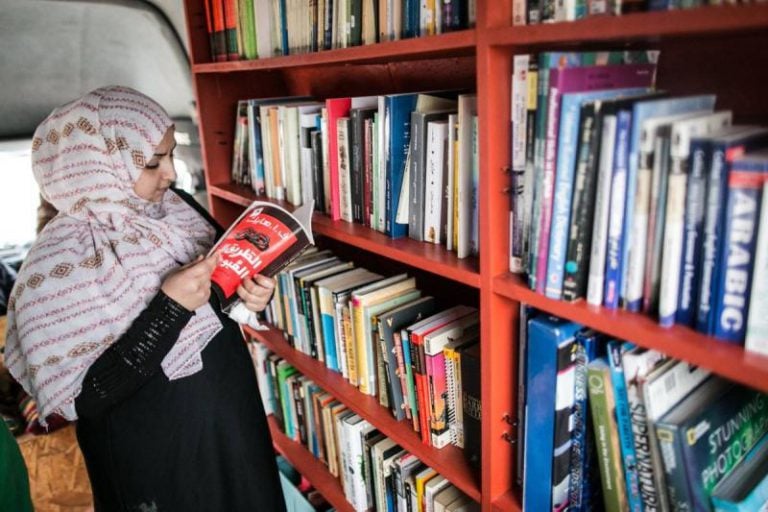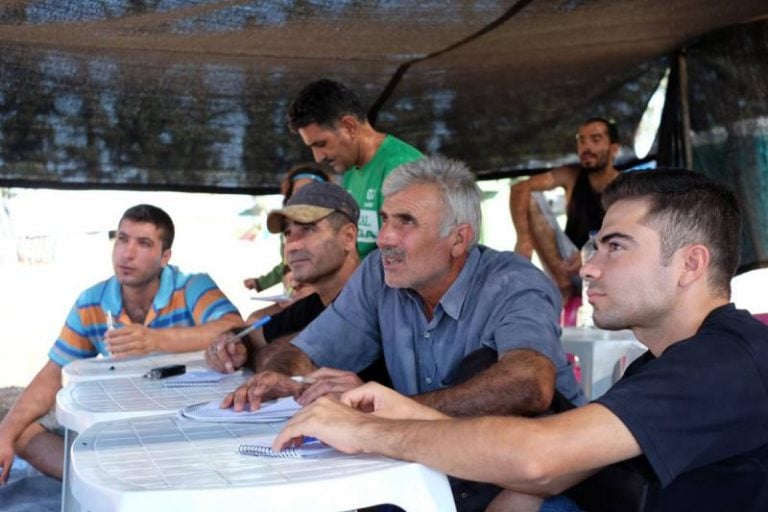It’s not every day that you come across people who are willing to take themselves out of their comfort zone and put their aspirations for a more inclusive world into practice, which is why the efforts of Esther ten Zijthoff and Laura Samira Naude are so impressive.
Since 2015 tens of thousands of people have found themselves in dire straits, making their way from the Middle East across the Mediterranean Sea to Europe to seek refuge, risking their own lives and that of their children for the promise of a better tomorrow.
But the harrowing circumstances have shown a light on the generosity in the world.
Esther and Laura are two of the volunteers helping to make these people’s transition a little easier.
The pair ventured from their respective home countries in Europe to volunteer in Greece, where they received firsthand insight in the refugee experience.
While they say that those living in camps are provided with some form of shelter, food, clothing and, where necessary, medical attention, what the pair found to be missing was a sense of purpose; a fulfilling pastime to pursue. Speaking to some of the refugees, time again they would hear of the desire to continue where they left off in their home towns; to continue learning and add to their skill set for potential employment down the road.
Impacted by the concern expressed, Esther and Laura decided to take them on board and give something back with the development of not-for-profit initiative Education Community Hope and Opportunity (ECHO) – a library on wheels.
“Our primary motivation for starting a library was to enable refugees who are stuck waiting in limbo for their paperwork to be processed and their asylum claims to be accepted – often for more than a year, if not more – to use that time productively,” Esther told Neos Kosmos.
She says boredom and frustration, coupled with the lack of access to education and job markets, have a highly detrimental psychological impact, particularly felt by older youths and adults.

Meanwhile, with up to 50 per cent or more of the camp populations made up of young children, she noted that adults rarely had a space to relax and focus on themselves.
Esther and Laura are the main founders who have been running the project on the ground. Their idea was made possible with the support of their friend Clem Bruce from the UK and photographer Keoma Zec, who raised the funds to purchase the van and drove it all the way to Greece. With the help of friends, Zec built and installed shelving along with power points for internet access. Then a call out was made for books in a variety of languages.
Thanks to countless people’s generosity, their concept was made a reality and over the past few months they have gathered close to 1,300 books.
“The books were actually an extra in our minds,” she reveals. “Access to online learning and university courses were the heart of the project we were trying to get off the ground. We didn’t anticipate the demand for print resources over digital ones, which we quickly had to learn to keep up with.”

Since getting the initiative off the ground in November last year, Esther says the overall response has definitely been a positive one with an estimated 115 readers of all ages welcomed each week.
“Many of these resources, particularly language learning support for speakers of Arabic and Farsi, are very hard to come by in this context and are hugely appreciated. People don’t expect to be able to find books in their own languages here either, so they are usually quite pleased to find them in the van!” says Esther.
“We might not have a huge collection but we have a good amount of Arabic and Urdu books, and are working on growing our Farsi and Kurdish collections,” which she admits is no easy feat in Greece.
People are permitted to borrow books for up to a week with the possibility of renewal. So far the system has been successful by ensuring they run a fixed schedule that sees the library visit each site at the same time and on the same day each week so people know when to expect them.

While the library has been a welcome addition, Esther says people’s reactions are dependent on their mental state. With dwindling resources, she says their efforts have only reaffirmed the need for more mental health support services for those seeking asylum.
“We have definitely seen a decrease in motivation and energy levels which affects people’s ability to concentrate on reading a book, much less follow an online course,” she explains.
“There is definitely a broader need for psychosocial support in these contexts. Short of providing formal education opportunities and access to jobs, which is what would make the most difference, people’s spirits and hope need to be kept up.”

Having started off near Thessaloniki, the library has since serviced much of northern Greece including the Vasilika camp, Elpida, Liti/Derveni, Softex, Frakapor, Polikastro Community Centre, Filoxenia (a housing block for vulnerable families) and a shelter for unaccompanied minors.
Since May they have transitioned into Athens, lending their services to a City Plaza squat, One Stop (a drop-in space for homeless people in the centre of Athens), Eleonas Camp, Khora Community Centre, a women’s centre, a youth centre, and are still looking to bring resources to other sites in the region if they are granted permission by the relevant authorities.
Meanwhile, having received attention around the world, many volunteers and organisations in Serbia, Italy, Palestine and Lebanon have expressed that the mobile set-up could work well in their local contexts.
But after spending a year-and-a-half in Greece as volunteers with no salary, the pair are now looking to find a new coordination team that can take over the running of the library.
“We have come to a point where we need to step away and support efforts from afar,” Esther said.
“We would hate for the project to stop, though, so we are on the lookout for a team to hand it over to. We still believe this is the right model for this (and similar) contexts, and feel strongly that the resources should circulate to as many sites as possible, connecting people with similar skills and interests along the way.”
For more on Education Community Hope and Opportunity (ECHO), visit echo-greece.org/ and follow them on Facebook.